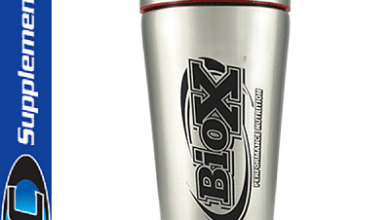Role of Medicine Management in Elderly Companionship Services in the U.K.

It is estimated that 48% of older adults take at least one medication in the United States.
According to one of the carers working in elderly companionship services in the U.K, it is important to know that as adults age, their body changes. This means that there will be an obvious change in their digestive system as well, which can affect how fast medications work, and how fast they enter the bloodstream and get delivered to various parts of the body.
Due to these factors, and many others, it is essential to understand the role of medication management in the elderly. Therefore, in this article, we are going to tell you all you need to know about the role of medication management as well as why it is important.
Why is medicine management in the elderly is important?
As mentioned earlier, as adults age, so do their bodies. This includes their bodily functions, how they move, their eating habits, body weight, amount of physical activity each day, and basically every aspect of their everyday life.
Therefore, changes in an adult’s digestive system can also change how their bodies respond to certain medications. This also includes the circulation in the elderly, which in most cases, slows down as seniors age.
Hence, these changes can affect the number of medications a single elderly might need to take. This is because such changes can also affect how long certain medications stay in our bodies, how fast they expel, and how fast they are absorbed into the bloodstream.
Therefore, in order for medications to work effectively for their required purpose. It is crucial to manage medications according to the elderly’s needs. Because, if medication is not dealt with care in the elderly. It could lead to severe side effects, and can even worsen the conditions of the seniors.
How to prevent problems?
The elderly can do their part by preventing any side effects or damage from their medication. Here are several ways that the elderly should consider doing when dealing with their medications. These recommendations are also for those carers who’re responsible for managing medicines for their patients:
Make a list of all the medications
The elderly should have a proper list of their medications with them. This includes both non-prescription and prescription medicines and should include all medicines that are prescribed by their primary health care provider, such as over-the-counter (OTC) medications, herbal remedies, vitamins, minerals, and so on.
It is also imperative to write down the right amount of doses for each medication, and what they are actually for.
Review medications regularly
Another aspect to keep in mind is to review the medications regularly. This also includes asking their primary health care provider any questions about their medications, and if they should continue taking the same medications along with the same doses.
Keep an eye out for side effects
When the elderly have started taking new medications. Or even the ones they have been taking for quite some time now, it is imperative to look out for any possible side effects.
This can include minute side-effects as well, as headaches, minor changes in heartbeats, and others.
It is important not to ignore such symptoms, as they might be indicators of possible side effects of certain medications.
If this happens, it is essential for the elderly/carer to contact their primary health care provider, and provide them with details of those symptoms. Till then, the elderly must put a halt to their medication.
Over-the-counter medications
Over-the-counter medicines can be purchased without any doctor’s or health care provider’s prescription. This includes common pain-alleviating medications, anti-allergy medicines, and so on.
They are available for sale at your local pharmacies and can be bought by anyone. However, this does not mean that the elderly can consume such medications without asking their health care provider first.
It is crucial to ask if that certain OTC medication would be suitable for them, and won’t pose any side effects. Therefore, the elderly must always talk to their health care provider before taking any medication, even if it includes ordinary OTC medications.
Take the correct doses
Most adults don’t take the proper dosage they have been prescribed by their doctor. In such cases, certain medications might not work, or the senior may suffer from the side effects of the medication.
However, the reason behind this might be their inability to read the instructions and labels of certain medications properly due to their weak eyesight and trouble opening medicine containers.
To avoid such undesirable circumstances. The elderly must properly ask about the dosage and medications prescribed by their doctor till they fully understand. And ask for a medicine container that is easy to open and is designed specifically for seniors.



